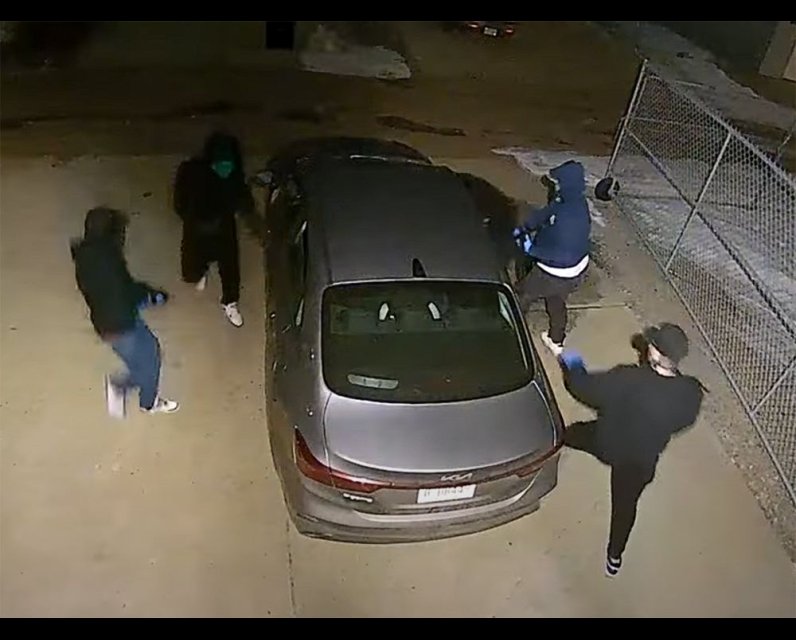The only ballot question in Edmonton and Calgary: 'Social disorder'

Alberta’s municipal election is set for Oct. 20, mere weeks away. The top jobs in Edmonton and Calgary are both in play and concerned citizens have been bending my ear about the stakes for the two big cities.
“This municipal election in Alberta matters,” I’m being told. “The province is the economic engine of Canada and as goes Alberta, so goes the country.”
Growth in both cities since 2020 has been double digit, with Alberta’s relatively healthy economy sparking a migration surge; the province is now home to over five million people.
“It’s a good problem to have,” agrees Adam Legge, president of the Business Council of Alberta (and the former lead pony guiding Calgary’s Chamber of Commerce).
But, he adds, it can be one of the most challenging things for a mayor and council to deal with. Edmonton’s mayor, Amarjeet Sohi is stepping down, leaving the field open to a crowded field of contenders. In Calgary, incumbent Jyoti Gondek is running on her record, in spite of very weak approval ratings.
In a rare move, Adam’s council of Alberta’s chief executives canvassed its members on the municipal election. They found that prosperity and livability are slipping, and warned: “Turning this around will take strong leadership and clear priorities from local leaders. Without it, we risk losing the very qualities that draw people here.”
Adam says ambitious projects — like Edmonton’s Ice District and Calgary’s East Village — will only reach their full potential as vibrant 24/7 locations when the development is supported by dedicated investments in safety and public services, to address social disorder.
“We were quite blown away,” Adam explains, when 94 per cent of the council’s members identified social disorder — a term that encompasses homelessness, mental health and addiction, physical crime, physical concerns for safety — as the biggest issue in this municipal election.
“If you want to keep me and my company in this community or in this downtown,” Adam reports, “you better do something about it, and it goes all the way to rural Alberta where we have members who have had their retail operations vandalized.”
As a member of Premier Danielle Smith’s Alberta Next panel, Adam has also been listening to folks across the province and he’s hearing the same concerns about crime and safety. “It’s a problem in big centres, small centres, rural centres, remote centres,” he says, “it is pervasive.”
And all three levels of government need to work together to fix this problem, Adam recommends. “This is no longer something that’s just up to the municipal government to tackle; it’s not just up to provincial, not just up to federal. There needs to be an all-of-government approach.
“The federal government,” Adam suggests, “needs to reform catch-and-release and bail legislation, so we don’t have those repeat people back on the streets within hours committing the same crimes.”
As for the province’s role, Adam reports: “We need the provincial government to work with the local governments to say, ‘We know you’ve got crime and safety, so we’re going to increase the support for physical presence on the street with police and sheriffs.’ We need wraparound supports for those that need help with mental health, addictions.
“And given that the municipal government is the one that faces this on the ground,” Adam concludes, “we believe that they need to take a leadership role in convening those other two levels of government to say, ‘We’ve got to fix this problem and fix it on the ground.’”
In most Canadian cities, he notes, mayors are just one vote on council, without the powers you see in American jurisdictions.
“Having said that,” he qualifies, “mayors have a strong role as an agenda setter … chief spokesperson, the chief marketing officer, to some degree even the chief strategy officer.” Adam acknowledges if that person doesn’t have the right priorities, and isn’t driving prosperity, “you see division and you see stagnation.”
Without that leadership, cities can struggle and languish, he observes, and “just get caught up in things that aren’t important and that are not priorities and the city suffers as a result.” One example: Mayor Gondek’s tone-deaf decision to declare a climate emergency as her council’s first item of business in 2021.
“What’s the business community looking for in civic leadership?” Adam asks. “They just want good, boring, solid government.
“They don’t want spice; they don’t want fireworks; they just want to know that whoever is going to take the helm of their government locally is going to do a good job of addressing their concerns. Because they feel that they just aren’t being addressed right now.”
Our website is the place for the latest breaking news, exclusive scoops, longreads and provocative commentary. Please bookmark nationalpost.com and sign up for our newsletters here.



Comments
Be the first to comment